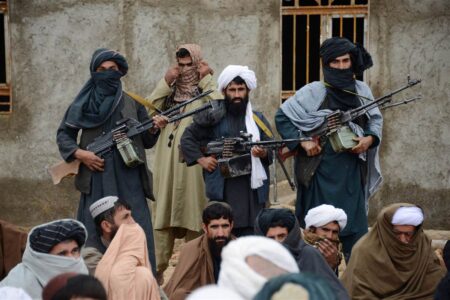
Al-Qaeda leaders still protected by Taliban terrorists in Afghanistan
The United Nations Security Council watchdog charged with monitoring sanctions against global jihadist groups has said the Taliban aid key leaders of al-Qaeda, noting that several top leaders continue to be “given shelter and protection by the Taliban”.
The report comes among mounting pressure on the United States government to roll back plans to withdraw its troops from Afghanistan.
The Analytical Support and Sanctions Monitoring Team’s report, released on Friday, notes that the “killing of several al-Qaeda commanders in Taliban-controlled territory underscores how close the two groups are”.
In their report, the sanctions monitor point to the case of Mohammad Hanif, a leader of al-Qaeda in the Indian Subcontinent who was killed in fighting in Afghanistan’s Farah province in November. Hanif, the report records a United Nations member-state as saying, “had been providing bomb-making training to Taliban insurgents”.
“Further evidence of close relations between the groups was the release of the wife of the late Asim Umar, a former AQIS leader, who was among the more than 5,000 Taliban prisoners freed by the Government of Afghanistan in 2020,” the report records.
Asim Umar, born Sana-ul-Haq in Uttar Pradesh’s Sambhal, grew up in an influential local family; his grandfather was a village pradhan, his grand-uncle a freedom fighter and great-grandfather a district magistrate under the British rule.
He is believed to have left for Pakistan to join the Harkat-ul-Mujahideen following the demolition of the Babri Masjid in 1992, and went on to be appointed founding chief of al-Qaeda in the Indian Subcontinent in 2014.
The report also underlines the growing power of the Tehreek-e-Taliban Pakistan, with an estimated 2,500-6,000 armed personnel and responsible, according to one member-state, for more than 100 cross-border strikes into Afghanistan last year.
Evicted from Pakistan’s borderlands in the course of military operations launched after 2014, the report says that the reunification of the TTP’s several splinter groups has been “moderated by Al-Qaida”.
A bipartisan study group appointed by the United States Congress on Thursday, called on their government to slow down the withdrawal of the country’s forces in Afghanistan, scheduled to be completed by May 1 according to the terms of a peace accord signed with the Taliban last year.
United States negotiators engaging with the Taliban in Qatar’s capital, Doha, continue to be led by Zalmay Khalilzad, appointed to lead by the effort by former President Donald Trump.
However, the Congressional study group has said progress is contingent on negotiators “making clear to the Taliban that they have not fulfilled the conditions in the Doha agreement under which a U.S. withdrawal can take place”.
The Doha agreement says the Taliban will act to stop al-Qaeda and other transnational jihadist groups “from threatening the security of the United States and its allies, and will prevent them from recruiting, training, and fundraising and will not host them”.
Failure in Afghanistan, the sanctions monitoring team suggests, could spur the growth of the Islamic State in Iraq and the Levant and al-Qaeda elsewhere in the world. The report flags both groups’ growth in several parts of the world, “mainly on the African continent”. “While terrorism continues to spread in West Africa, the region of Cabo Delgado in Mozambique is among the most concerning areas”.
The report also notes member-state concerns about “rising number of ISIL sympathisers in cyberspace in South Asia”. However, it adds that “notwithstanding continuing Member State concerns about abuse of technology by terrorists, especially in the fields of finance, weaponry and social media, neither ISIL nor al-Qaeda is assessed to have made significant progress in this regard in late 2020”.
Source: News 18





